Meet our awardees
After a thorough reviewing process, we are delighted to announce the following projects that have been awarded.
Developing a Feasibility Framework for MedTech in Low-Resource Settings: NeoNest Uganda
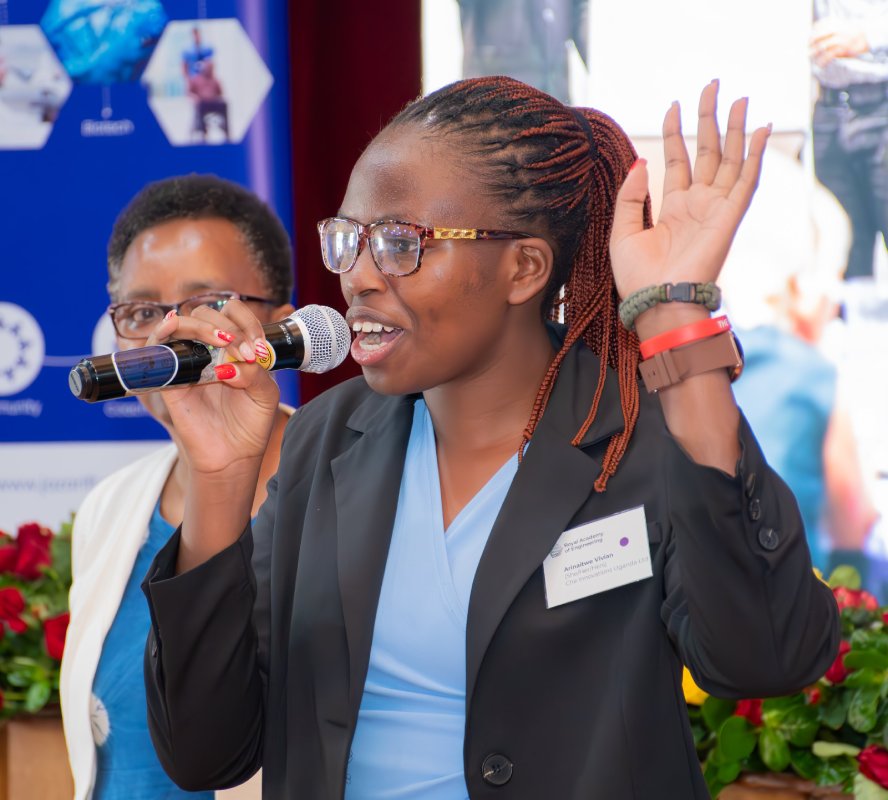
Vivian Arinaitwe, Che Innovations Uganda Ltd
Co-applicants and collaborators:
- Jassica Enum, SEED Madagascar
- Leen Jabban, University of Bath
- Megan Hall-Jackson, London South Bank University
- Kamuhanda Success, Makerere University
- Okileng Joseph, Che Innovations Uganda Ltd
- Sophia Singer, Che Innovations Uganda Ltd
- Atukuri Patricia, Che Innovations Uganda Ltd
- Saajan Patel, Che Innovations Uganda Ltd
This project will develop and test a lean feasibility assessment framework tailored for MedTech innovators in Low- and Middle-Income Countries. The framework will offer a structured yet adaptable approach to pre-market evaluation, ensuring effective adoption, scalability, and integration into resource-limited healthcare systems. To validate the framework, the team will apply it to NeoNest, a low-cost neonatal transport incubator developed by Makerere University and Duke University to prevent neonatal hypothermia during emergency referrals.
Increasing Resilience of Rural Healthcare: Climate-Friendly Energy & Digital Solutions
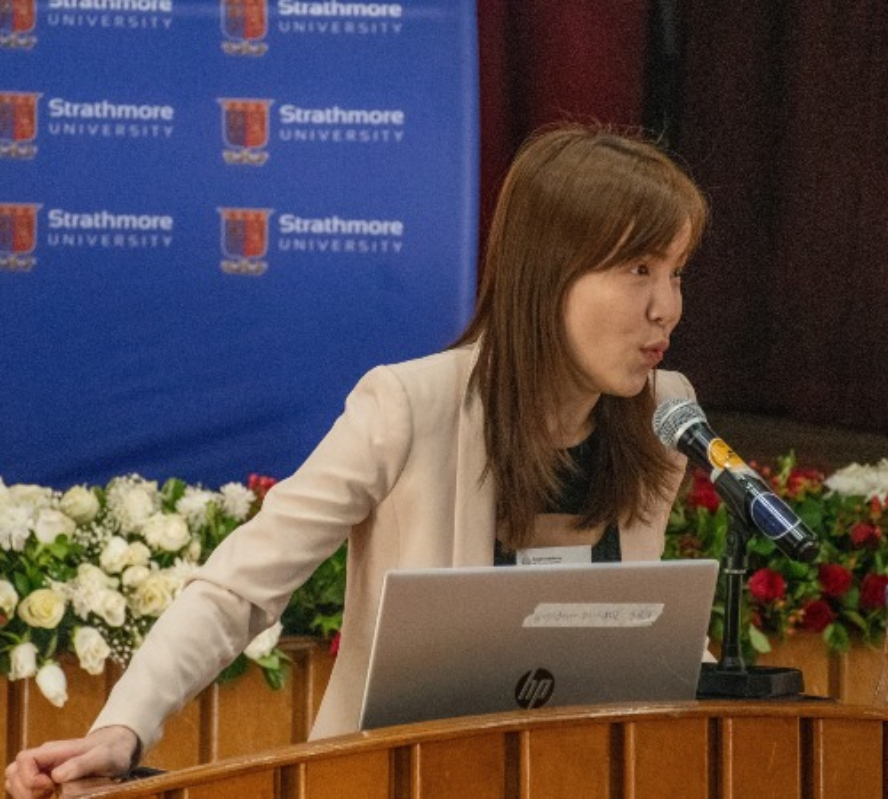
Dr Evona Teh, EV Medical Consulting / Imperial College London
Co-applicants and collaborators:
- Dr Atieno Odhiambo, Greenovex Solutions Ltd
- Dr Jesse Whitehead, University of Waikato
- Dr Bahaa Eddine Sarroukh, Philips Foundation Impact Investments
- Dr Mohammad Sakikhales, University of West London
Through interdisciplinary collaboration, this project aims to conduct a feasibility study on sustainable electrification of rural healthcare infrastructure in Siaya and Kisumu, Kenya. Expected results are the completion of two co-design workshops, a technical feasibility study, and a funding application to scale impactful solutions across the region. By enhancing energy access, this project aims to improve health outcomes and build a more resilient healthcare system for communities of Siaya and Kisumu.
Advancing Urinary Incontinence Diagnosis Through AI and Ultrasound Technology
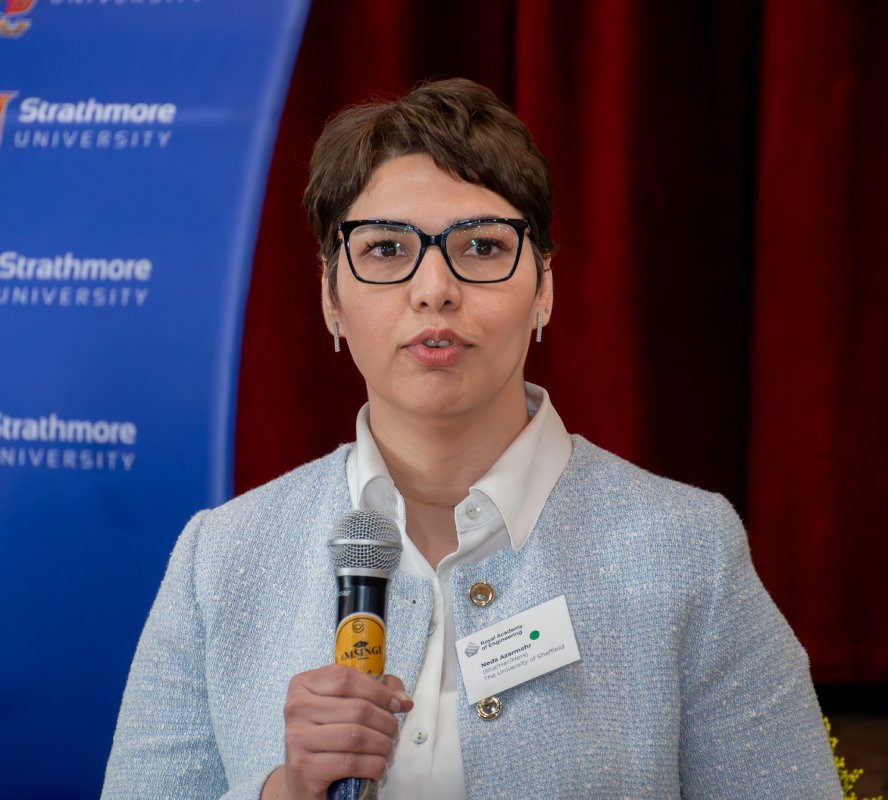
Dr Neda Azarmehr, The University of Sheffield
Co-applicants and collaborators:
- Dr Naşide Mangir, Hacettepe University Adult Hospital
- Dr Achala Upendra Jayatilleke, World Health Organization
- Dr Henry Muchiri, Strathmore University
- Dr Lesley Wakhu, Strathmore University
The team will develop deep-learning models using 2D transvaginal ultrasound to diagnose urinary incontinence. Independently, a feasibility study on AI-assisted diagnostics will be conducted in low-resource settings. Collaborators will survey and interview healthcare professionals to identify barriers to AI adoption, including ultrasound, and create a preliminary integration roadmap.
Feasibility study for Solar-Powered Health Solution (Bright Health)
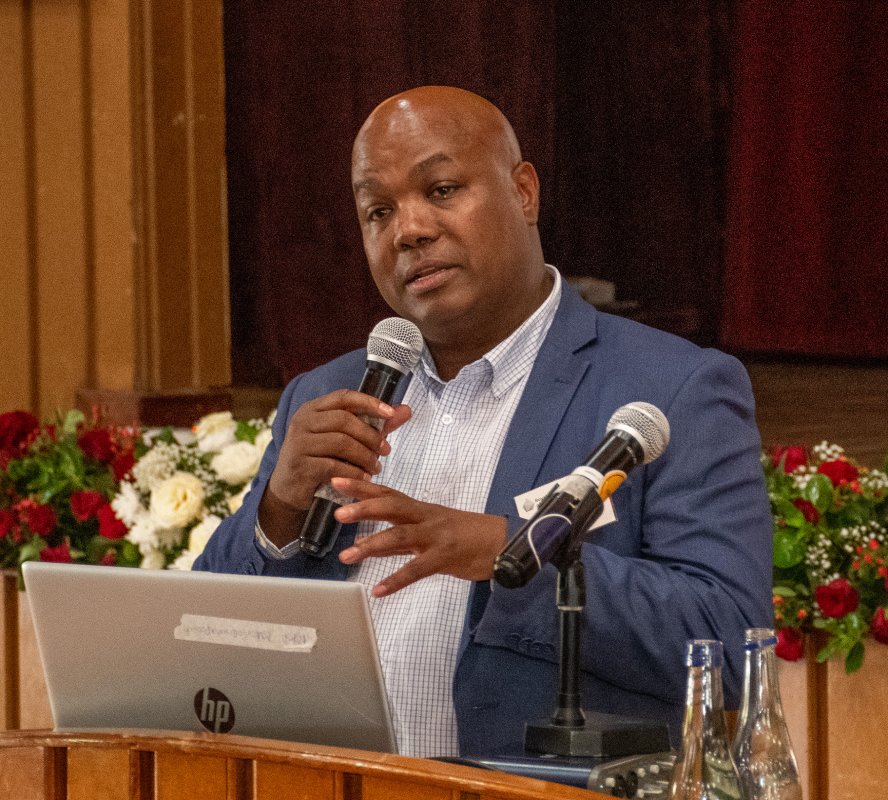
Pazion T. Cherinet, eHealth IT Services PLC (Orbit Health & Orbit Innovation Hub)
Co-applicants and collaborators:
- Dr Mohammad Sakikhales, University of West London
- Danny Nyatuka, Strathmore University
- Eyosias Abiye, Orbit Health
- Dr Selam Muluneh, Orbit Health
This project aims to conduct a feasibility study to prepare for the deployment of Bright Health, which combines renewable energy systems with offline/online-compatible digital tools tailored for low-resource settings. The solution will enable facilities to manage medical records, track supplies, and share critical health data without relying on unstable grids or costly internet.
Scaling Affordable Prosthetic Solutions in Kenya and beyond
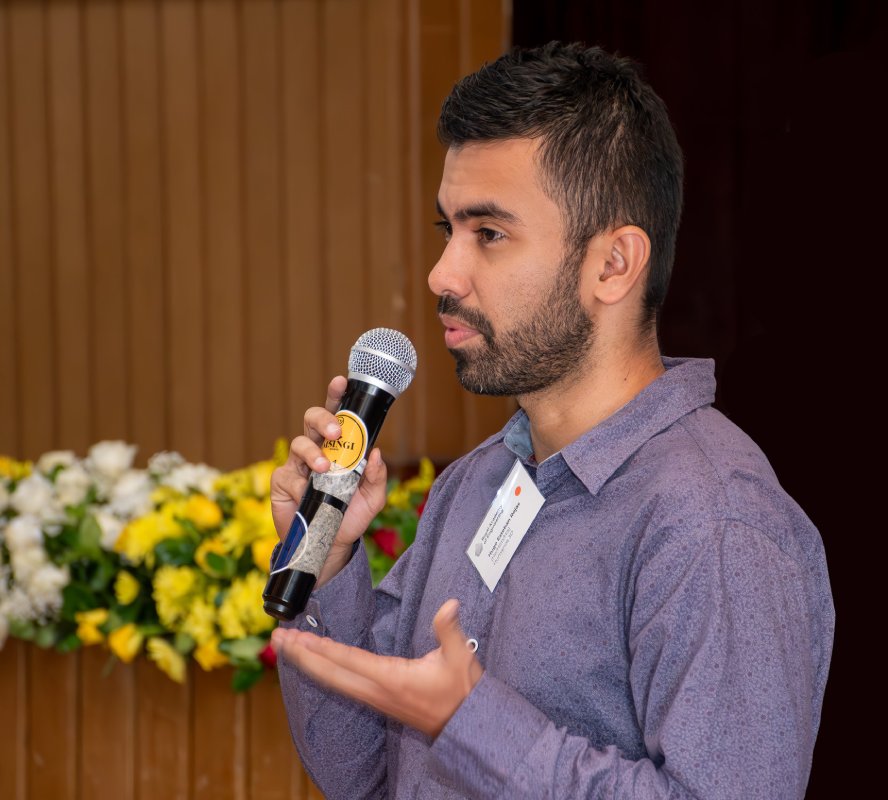
Hugo Rojas, Humanos 3D
Co-applicants and collaborators:
- Abraham Mwaura, Medevice Africa
- Dr Salsawit Tesfaye, UGHE
- Dr Atish Shah, Roverlabs Tanzania Limited
- Megan Hall Jackson, London South Bank University
- Francisco Cuesta, Acumen Academy
- Federico Restrepo, Impact Hub
This project aims to expand access to affordable and customized 3D-printed assistive devices in Kenya and beyond. By integrating prosthetic provision, local capacity building, and skills development, the initiative ensures a sustainable model for long-term impact. Using low-cost 3D printing, the team will co-create functional prosthetic solutions tailored to the needs of each beneficiary, empowering local communities with the necessary knowledge to continue production independently.
A Chatbot to Enhance Adolescent Mental Health Wellness in Kenya
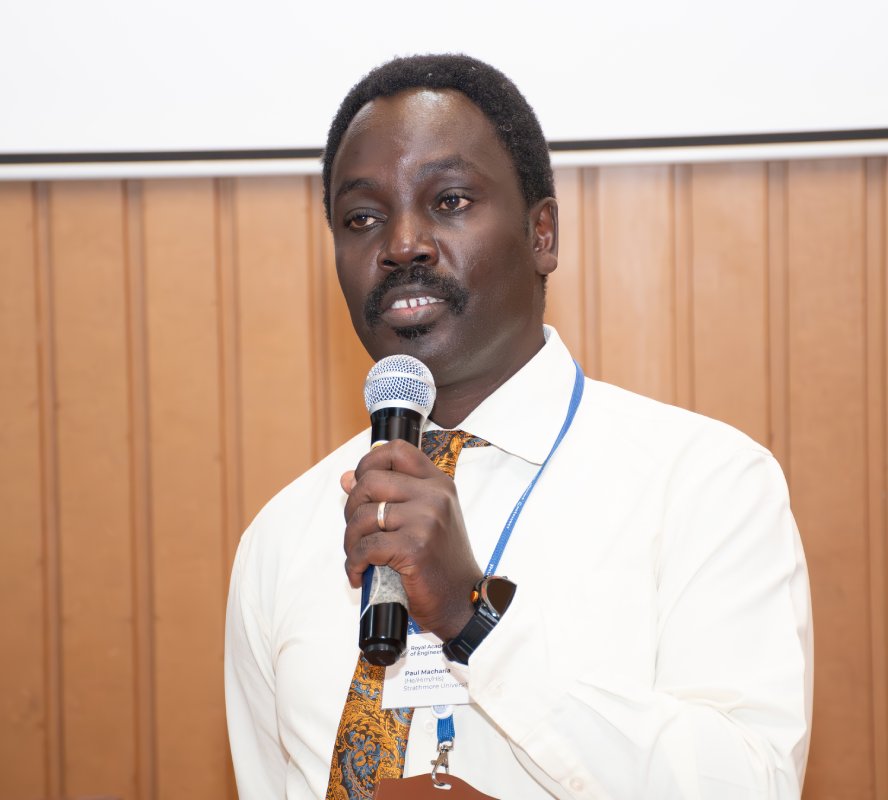
Dr Paul Macharia, Strathmore University
Co-applicants and collaborators:
- Dr Jabin Rahman, University of Bradford
- Rory Assandey, La Ruche Health
- Dr Anne Mbwayo, University of Nairobi
- Irene Misoi, Strathmore University
This project, "Imarisha Afya ya Akili" (Enhance Mental Wellness), aims from a human-centred design methodology to improve mental well-being in Kenya by providing accessible and culturally relevant adolescent-targeted mental wellness support through a social media-based digital intervention. The web-based social media intervention “Dəˈskəs” is a co-designed digital intervention that offers adolescents a “safe” space to connect with their peers and access health information.
Kenyan Neonatal Mortality Risk Predictor: A User-Centered Design Evaluation
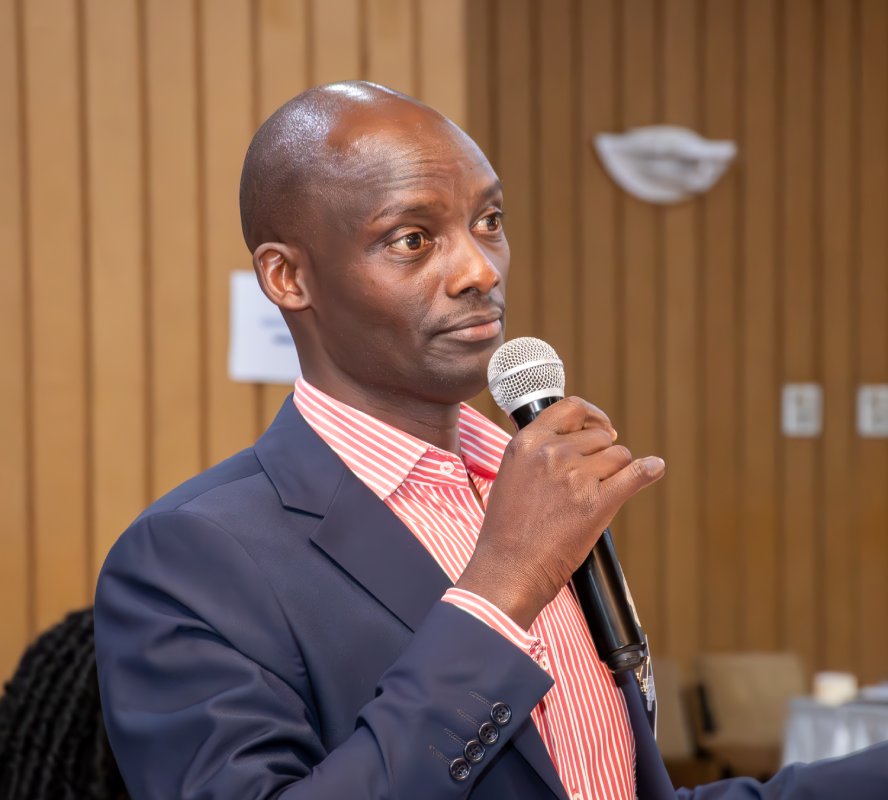
Dr Danny Nyatuka, Strathmore University
Co-applicants and collaborators:
- Dr Shafiqur Rahman Jabin, University of Bradford
- Faith Siva, Strathmore University
- Dr Paul Macharia, Strathmore University
- Dr Esther Khakata, Strathmore University
- Dr Betsy Murrithi, Strathmore University
- Dr Vivek Shukla, University of Alabama at Birmingham
Existing triage systems in low- and middle-income countries (LMICs) cannot enable accurate clinical decisions or prioritise treatment and care for high-risk neonates. The project seeks to evaluate the usability, user experience, and utility of a neonatal mortality risk-screening tool in a healthcare context from a user-centred design perspective to address the gaps through real-world pre-implementation in the Kenyan context. It will enhance triage and clinical decisions to improve survival rates of neonates through creating a low-cost, people-centred, and sustainable intervention using lenses of frugal innovation to align with national health priorities towards achieving target 3.2 of SDG 3.
Innovative approaches to Kenyan healthcare needs identification and impact pathways
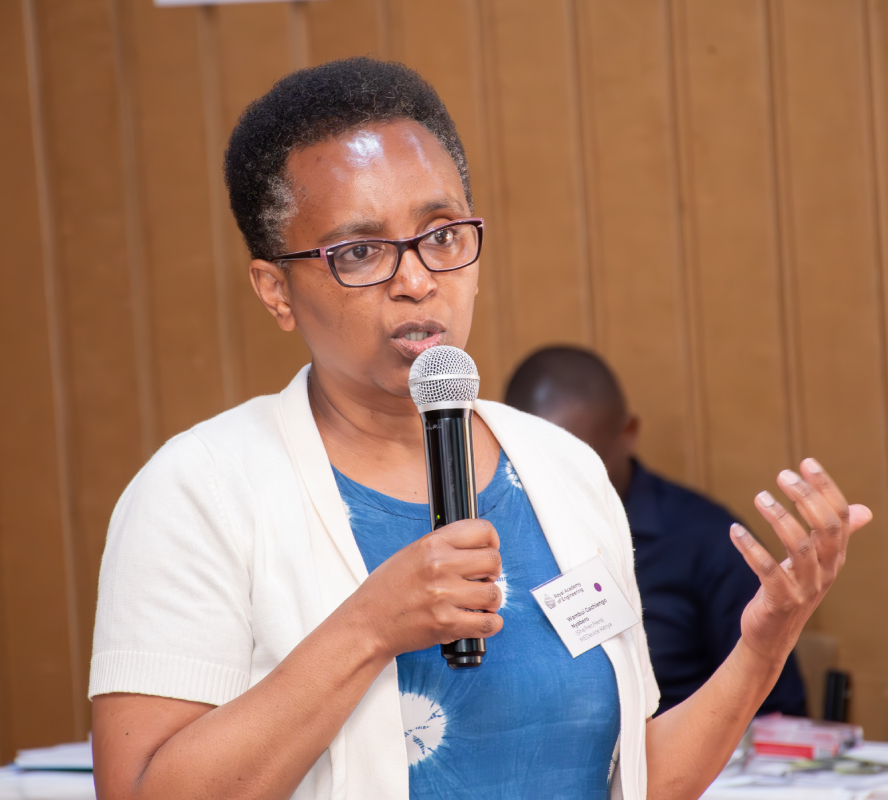
Wambui Gachiengo Nyabero, Medevice Africa
Co-applicants and collaborators:
- Dr Watu Wamae, University of Oxford
- Maryanne Muriuki, Kenyatta University
- Dr Patrick McSharry, Carnegie Mellon University Africa
This project addresses the challenge of access to critical medical devices for delivering hospital care in Africa by conducting a pilot study in four Kenyan counties. The team will co-design the study, with key stakeholders in the healthcare and medtech sectors. The outputs will be (i) a validated priority list of healthcare needs (ii) a framework to determine “needs-fit” for hospital care and (iii) a pathway to translate needs into commercial solutions.
